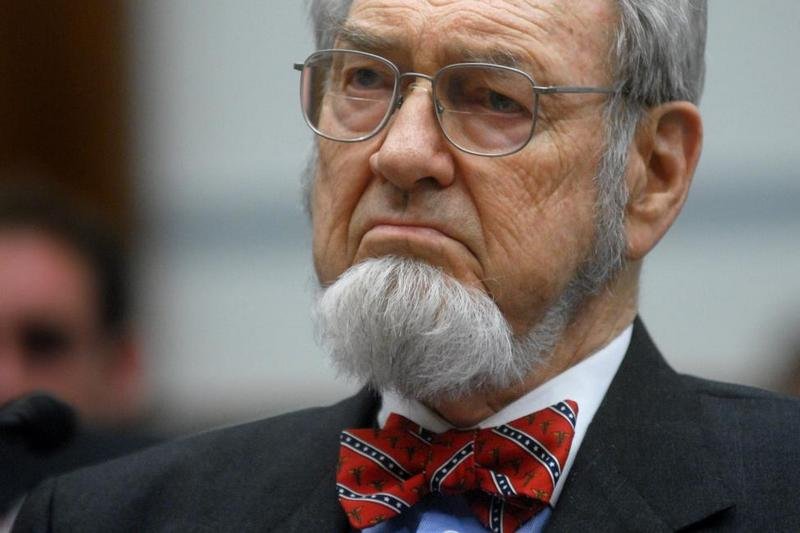
Guest post by MJ Lisbeth
I am an atheist and a Democrat. Even so, the public official I have most respected, for most of my adult life, was a conservative Christian — and a rock-ribbed Republican.
If you are around my age, you have an image of him with a bushy, mustacheless beard. You remember him wearing what looked like a Naval Admiral’s uniform, or a suit with a brightly-colored bow tie that served as a diacritical mark highlighting his facial hair.
Most important, though, you remember the way he acted while he was on the national (and, for a time, worldwide) stage. That behavior was completely consistent with his professional ethos as well as his personal values.
His name was Charles Everett Koop. Ronald Reagan, during his first year as President of the United States, nominated Dr. Koop as Surgeon General. Despite objections from feminists, LGBT people, and secularists, the Senate overwhelmingly confirmed his confirmation late in 1981. Charles Everett Koo His name was Charles Everett Koop. Ronald Reagan, during his first year as President of the United States, nominated Dr. Koop as Surgeon General. Despite objections from feminists, LGBT people, and secularists, the Senate overwhelmingly confirmed his confirmation late in 1981.
He would soon put their fears to rest. Although he personally opposed abortion because of his religious beliefs, he would not succumb to pressure from the Reagan administration to prepare a report stating that abortion is psychologically damaging to women. Ever the doctor (pediatric surgeon) and scientist, he said there simply wasn’t evidence to corroborate what the President wanted him to say.
His stance seems even more consistent with his credo when you realize how active he was in championing the rights of the newborn. Although he was not personally involved with the case, he was motivated by the death of a six-day-old boy who was born with Down Syndrome and denied surgical treatment to correct his esophageal atresia and tracheoesophageal fistula. Before he became Surgeon General, he was, for more than three decades, the surgeon-in-chief at the Children’s Hospital of Philadelphia, during which he saw increasing survival rates for babies with congenital maladies. During his last eight years, he never lost a full-term baby on whom he operated to correct esophageal atresia.
He would also call attention to the AIDS epidemic when the President would not utter the word “AIDS” in public. Liberal and LGBT groups criticized him for highlighting the dangers of sexual intercourse in general, and gay sex in particular, for spreading the disease. But he was also excoriated by religious conservatives and others for recommending mandatory sex education, beginning in the third grade.
Finally, he put his scientific knowledge ahead of the wishes of his boss when he called for stronger warnings against tobacco use. He infuriated some of the largest donors to the Republican Party—namely, cigarette makers—by issuing a report saying that nicotine has addictive qualities similar to those of heroin and cocaine, and should be treated as such.
After he left public life, he started a website that published articles that turned out to be little more than advertisements. Still, he deserves credit for his fealty to empirical evidence over the agenda of an administration, or even his own religious beliefs.
It seems that a Dr. Koop for this generation, if you will, has emerged. Like Koop, he is a physician and scientist. He, too, became a national public official during the Reagan Administration. He is also is resisting, quite publicly, a President and administration who deny science at every turn.
Dr. Anthony Fauci became the director of the National Institute of Allergy and Infectious Diseases in 1984. He has remained in that position under six Presidents, turning down several offers to lead the NIAID’s parent organization, the National Institutes of Health. During his tenure, Fauci has been at the forefront of efforts to deal with HIV, SARS, Ebola and other contagious diseases. In 2003, the Institute for Scientific Information stated that during the previous two decades, Fauci was “the 13th-most cited scientists among the 2.5 to 3 million authors in all disciplines throughout the world who published articles in scientific journals.”
His current boss denied the threat of the coronavirus until a couple of days ago. Even after Donald Trump finally acknowledged the severity of the pandemic and the need to take unprecedented actions against it (and the economic disruptions it’s causing), he continued to blame the Chinese for it. And members of his administration insist that, while public gatherings and physical contact of other kinds have been banned in various cities and countries, church-goers won’t get sick by attending worship services, and that communion wafers and shared wine cups won’t transmit the virus.
Dr. Fauci, in another parallel with Dr. Koop, refutes those, and other, follies—and articulates his dire but accurate warnings—in clear, unambiguous language. The main difference, I believe, between the two men’s situations is that while most of the pressure on Koop came from “behind the scenes,” Fauci must make himself heard when his boss is an overbearing bully who is always trying to talk over him. Fortunately for us, Dr. Fauci, it seems, has been heard, loud and clear.
So here is another case of history repeating itself: Drs. Koop and Fauci had to fight against religious superstition and plain-and-simple bigotry in the hope that empirical evidence would guide public policy. Unfortunately, if history teaches us anything, it’s that every public health crisis will need a Dr. Koop or a Dr. Fauci, whatever his or her ecumenical or political affiliations, to prevail against religious bigotry and political partisanship. People who were caught in earlier epidemics like the Black Death, unfortunately, did not have anyone like either of them.
